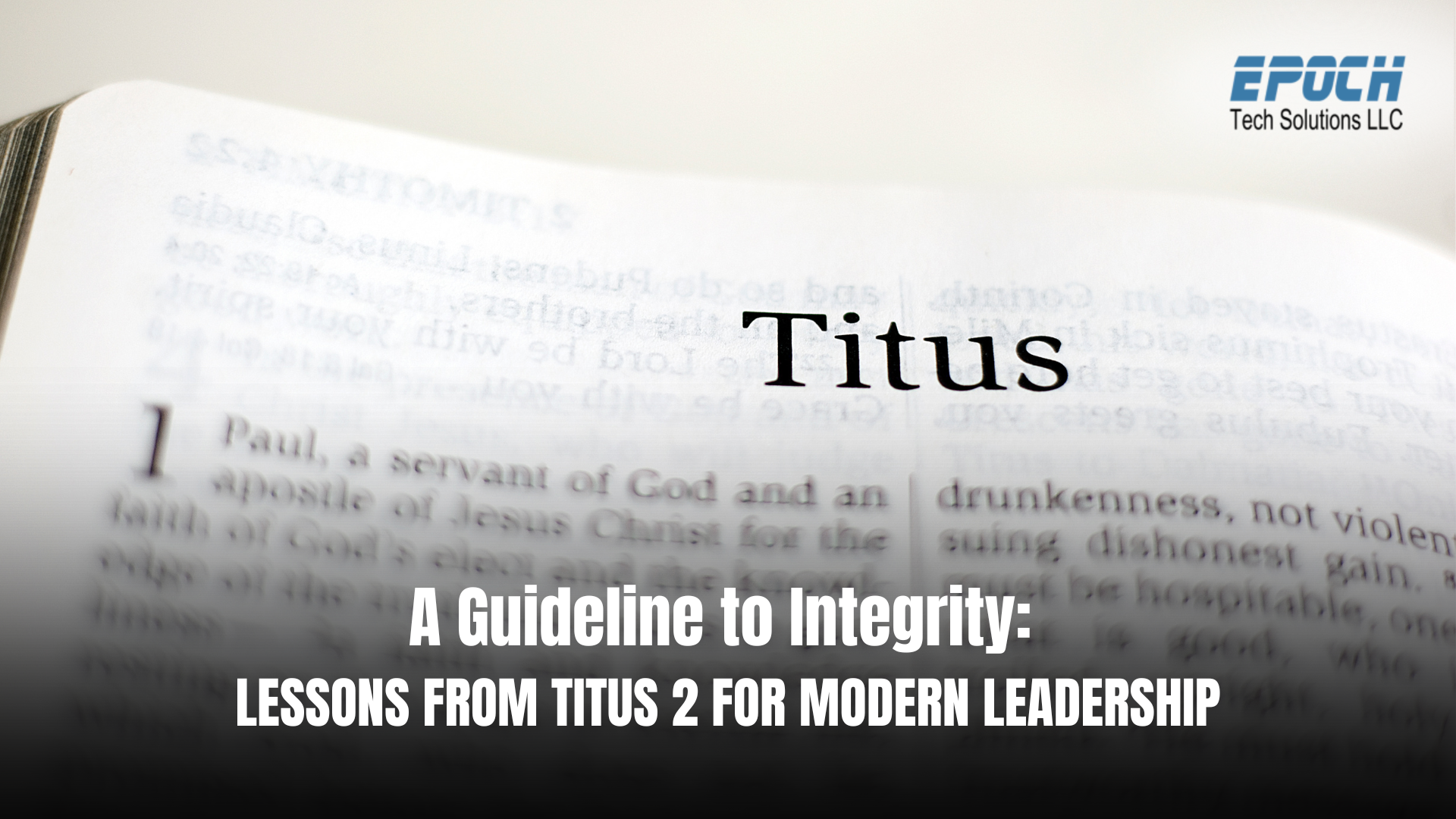
In today’s world, where reputations can be built or broken with a single viral post, integrity is no longer a nice-to-have: it’s the backbone of lasting influence. For business owners, entrepreneurs, and leaders, integrity is the invisible currency that sustains trust, loyalty, and credibility. But how do you define it in action?
The ancient letter to Titus offers a surprisingly modern framework. Titus 2 doesn’t present integrity as a lofty ideal: it shows how integrity should look in daily leadership, relationships, and teaching. And if practiced well, it doesn’t just benefit believers; it creates healthier organizations, communities, and businesses.
Titus 2 anchors leadership not in charisma, but in consistent, upright conduct. Paul charges Titus to be a living example of good works, dignity, and sound speech. Why? Because when a leader’s life aligns with their teaching, their message becomes undeniable. Integrity becomes contagious.
Integrity isn’t abstract: it’s visible. Titus was instructed to embody good conduct so that his life could be a model. For leaders today, this means making sure your calendar, payroll, or boardroom decisions match the values you preach.
Integrity demands that there’s no gap between what is said and what is done. Sound speech and sincerity aren’t about perfection; they’re about consistency. When leaders teach values, their credibility comes from showing they actually live them.
Integrity inspires respect even among critics. When opponents have nothing negative to say, it means a leader has lived beyond reproach. For businesses, this translates into loyal employees, trusted partnerships, and a brand reputation that outlasts market fads.
Integrity is not limited to one role or age group; it’s a shared responsibility. Titus 2 offers practical expectations:
Temperate, dignified, self-controlled, sound in faith and patience. Wisdom is the hallmark of integrity here.
Reverent in behavior, not slanderers, mentoring younger women by teaching what is good. Integrity flows through example and guidance.
Trained to love their families, be self-controlled, pure, and kind. The integrity here is relational and practical.
Self-control, good works, and honesty in teaching. Titus himself is the model, showing that integrity is as much about character as it is about communication.
A local business leader once declined a lucrative contract because it required cutting ethical corners. While profits dipped in the short term, the trust earned from employees and clients led to doubled revenue within two years.
In one company, a senior manager not only encouraged younger staff to value work-life balance but modeled it by respecting boundaries herself. The result? Improved employee satisfaction and reduced turnover.

Leadership experts agree that integrity is the cornerstone of trust. Dr. Stephen Covey, author of The Speed of Trust, once noted that integrity creates a “trust dividend”; the more people trust you, the faster you can move as a business.
The same rings true for Titus 2: integrity not only strengthens faith but also streamlines community, teaching, and leadership. For entrepreneurs, integrity removes the hidden costs of doubt, micromanagement, and disengagement.
Integrity isn’t about flawless perfection; it’s about consistent alignment of actions, words, and beliefs. Titus 2 reminds us that integrity has ripple effects; it strengthens credibility, empowers others, and makes leadership more attractive to those watching from the outside.
Whether you’re leading a church, a startup, or a multinational company, integrity remains your most valuable currency. Build it, protect it, and live it.
Want to build integrity into your leadership and organization?
Contact Epoch Tech Solutions today for a free consultation: https://www.epoch-techsolutions.com/contact-us